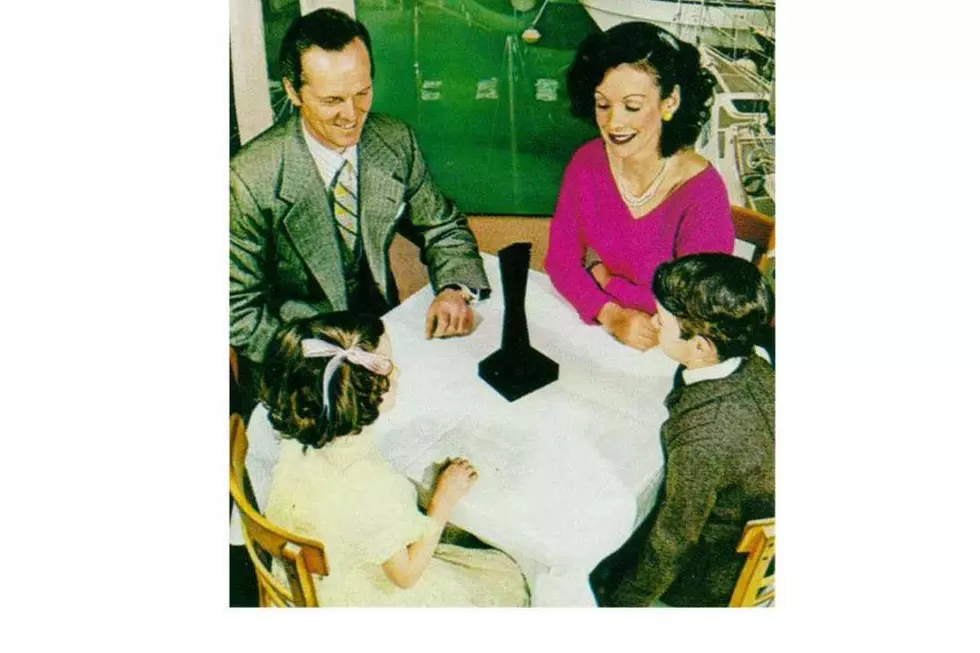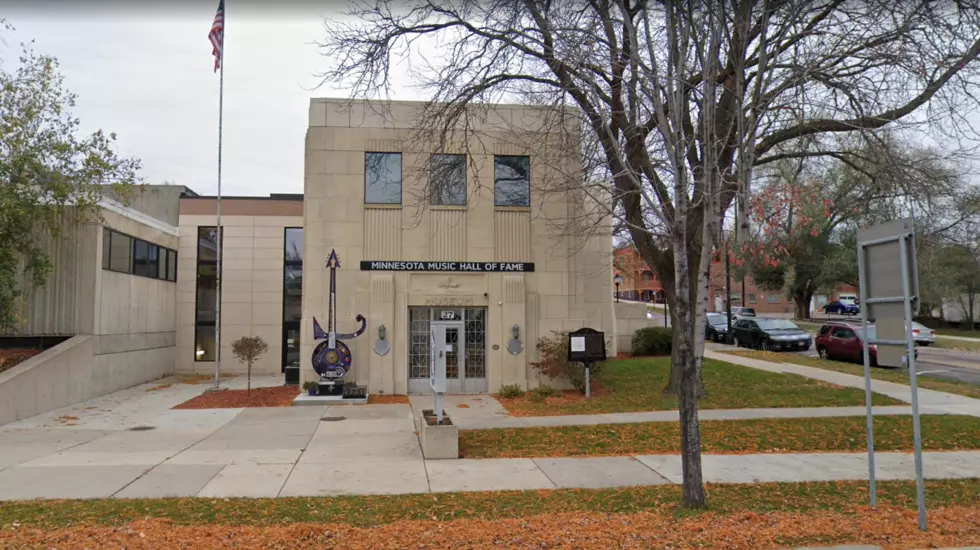
When Led Zeppelin Pushed Back Hard With the Bluesy ‘Presence’
Best described as a moment when Led Zeppelin stopped for a longing look back, Presence found the band — in the midst of a slow descent — returning to its blues roots.
A drug-fueled decadence had set in as a wheelchair-bound Robert Plant worked to recover from a serious auto accident. Perhaps predictably, things got introspective. But make no mistake: They weren't melancholy. If anything, Led Zeppelin were determinedly aggressive – despite Plant's health issues.
“His leg’s in a cast, but he wants to do an album,” Jimmy Page later told the Toronto Sun. “When he was singing, he was actually up on a stool. He wasn’t singing from the wheelchair. So [Presence was recorded] under the circumstance of all of us wanting to do an album, to be able to let off steam."
With touring temporarily off the table, they directed everything into studio work. "It was an album of circumstances. It was a cry from the depths, the only thing that we could do," Plant told Circus back then. "I honestly didn't know what was going to happen and neither did anybody else. ... It was taken from the balls, you know. That was where it was coming from."
They finished Presence – recording and mixing – in less than 20 days, the fastest any project had come together since Led Zeppelin's self-titled debut – which shares this set's hard-blues sensibility.
Listen to Led Zeppelin Perform 'Achilles Last Stand'
The deadline wasn't of their own making, however, as "the Rolling Stones were due to use the studio next," Page told Radio. "So, I asked Mick [Jagger] if we could have a couple of more days. They were trying all different guitarists out at the time, they were doing Black and Blue there, so Mick said, 'Yeah.'"
When Presence arrived on March 31, 1976, it became clear that this telescoped time frame hadn't kept Led Zeppelin from trying some new things – even though a return to bluesier sounds could have led to safe nostalgia with any other band. "Achilles Last Stand," which Page has described as "an avant-garde thing" featuring a "whole sort of guitar orchestra," pointed to the shifting time signatures that would dominate the new wave of British heavy metal.
"It was meant to be tricky, with the stops and the pauses and the phased guitar," Page told Radio. "When you hear that, you say, 'My goodness gracious, these guys are on fire here.'"
Throughout, drummer John Bonham unleashes monstrous, but surprisingly limber, polyrhythms, sounding born anew on throwbacks like the poignant “Tea for One” and “For Your Life” (a studio improv), some of the heaviest of this album's heavy Zep moans. But “Achilles Last Stand,” which found Bonham's drums working over roughly the first half as the lead instrument, is his crowning achievement. Even Page’s patented “army of guitars” sound is no match for Bonham’s charging fills.
Listen to Led Zeppelin Perform 'Nobody's Fault But Mine'
Elsewhere, they may never have been more hooky than on "Hats On for Nowhere" and "Royal Orleans." Only "Candy Store Rock," a middling boogie number, disappoints. But that's balanced by the titanic "Nobody's Fault but Mine," home to one of rock's most viscous harmonica solos. ("'Nobody's Fault but Mine,'" Plant admitted in Jon Bream's Whole Lotta Led Zeppelin, "was very spiky – a lot of clinched teeth.")
What's largely missing creatively is John Paul Jones – who, at that point, was moving toward a breakthrough on the Yamaha GX-1 that would define the group's next album, 1979's In Through the Out Door. If anything, that likely hardened this album's edges.
Thoughts of the future, however, were not out front; their timeline for completing Presence left little space for introspection. "Robert was really keen to do the recording, and we all were, because there wasn’t anything else that we could do," Page told the Guardian. "There was a unified will to do this album. I mean, he’s singing his heart out and that’s all there is to it. We weren’t thinking about tomorrow, we were thinking about that immediate point in time, collectively."
And so Presence pushed back hard – against their fading glory, against the personal issues that surrounded Led Zeppelin, against time and against timelines. They never again sounded this fiercely focused. Or this fierce, period.
"It’s fast ... and everything was really done for a purpose," Page told the Sun. "It was so focused and it was defiant, if you like, to the set of circumstances.”
Top 40 Blues Rock Albums
Was Jimmy Page Almost Part of a New Supergroup?
More From KYBB-FM / B102.7










